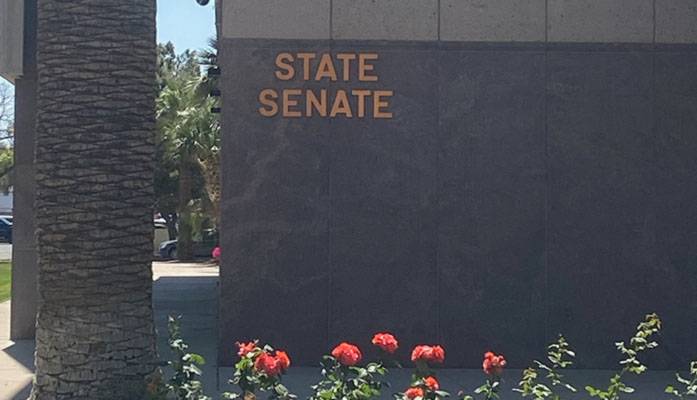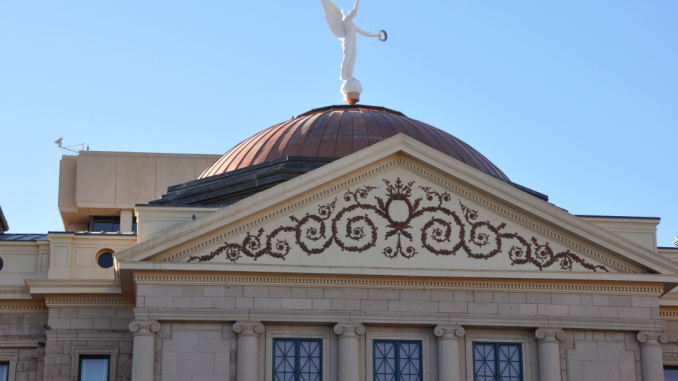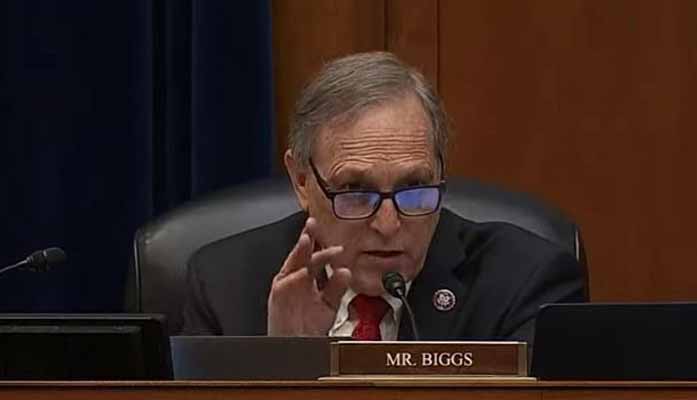
by Jonathan Eberle | Jun 23, 2025 | News
By Jonathan Eberle |
Arizona voters will weigh in next year on a proposed constitutional amendment that would bar the state and local governments from taxing drivers based on how many miles they travel, as well as from placing limits on an individual’s vehicle mileage.
The proposed amendment, which will be placed on the November 2026 ballot, would make Arizona the first state in the nation to constitutionally prohibit vehicle miles traveled (VMT) taxes and related mileage restrictions.
VMT taxes—also referred to as mileage-based user fees—charge drivers a per-mile fee for use of public roads. While proponents argue the system offers a fairer alternative to traditional gas taxes, especially as electric vehicles become more common, opponents have raised concerns about privacy, government overreach, and potential impacts on rural and suburban drivers.
Currently, 24 states are testing or have launched VMT programs, according to the Tax Foundation. Most are voluntary and focus on electric or hybrid vehicles. Only Hawaii has a mandatory VMT program scheduled to take effect in stages, beginning with electric vehicles by 2028 and light-duty vehicles by 2033. Oregon was the first to implement a voluntary VMT system in 2015.
Supporters of Arizona’s constitutional amendment say it’s a preemptive strike to protect driver freedom and block what they see as a growing trend of government intrusion.
“As we have seen in other states, governments left to their own devices will succumb to radical attempts to track, tax, or limit their citizens’ transportation miles,” said Scot Mussi, president of the Arizona Free Enterprise Club, which has long opposed VMTs. “The Arizona Free Enterprise Club has been fighting for the Freedom to Move Act since 2023,” Mussi added. “We are thrilled that our Republican-majority legislature chose to give voters the ability to protect their way of life by preserving our freedom to travel by personal vehicle in our state.”
SCR 1004 marks the legislature’s second attempt to advance such a measure. A similar proposal—House Concurrent Resolution 2018—passed the House in 2024 but failed in the Senate in a 15–15 tie. Under Arizona law, constitutional amendments approved by the legislature do not require the governor’s signature to go to the ballot.
SCR 1004 is the first measure officially certified for the 2026 ballot. Lawmakers are still considering 20 other proposals—eight constitutional amendments and 12 referred statutes—that could also appear before voters next year. If voters approve SCR 1004, Arizona would become the first state to embed a ban on VMT taxes and mileage limits into its constitution—setting a potentially influential precedent in the national transportation policy debate.
Jonathan Eberle is a reporter for AZ Free News. You can send him news tips using this link.

by Jonathan Eberle | Jun 22, 2025 | News
By Jonathan Eberle |
A scheduled confirmation hearing for Karen Lee Peters, Governor Katie Hobbs’ nominee to lead the Arizona Department of Environmental Quality (ADEQ), was abruptly postponed on Wednesday by the Senate Director Nominations Committee.
Committee Chair Sen. Jake Hoffman (R-Queen Creek) announced the delay just hours before the hearing was set to begin, citing unresolved questions about certain aspects of Peters’ background that surfaced during the vetting process.
“Based on possible discrepancies with information relating to items we vetted, further clarification is necessary prior to holding Ms. Peters’ confirmation hearing,” Hoffman said in a written statement. He did not specify the nature of the discrepancies, nor whether they pertained to Peters’ previous professional experience or policy positions.
The postponement also came as the Arizona Senate worked to advance the state budget, which Hoffman noted was straining staff capacity.
“Given the Senate attempting to move the state budget today, our staff is stretched thin, and it is best to simply table the nomination for now,” Hoffman said. “I have communicated to Hobbs’ staff that we will reschedule her hearing soon.”
Peters’ confirmation is one of several being closely watched, as the Republican-controlled Senate continues to scrutinize the Democratic governor’s nominees for key state agencies.
Jonathan Eberle is a reporter for AZ Free News. You can send him news tips using this link.

by Jonathan Eberle | Jun 22, 2025 | News
By Jonathan Eberle |
With less than two weeks before Arizona’s fiscal year ends, a deepening budget dispute between the state House and Governor Katie Hobbs escalated Saturday, as House Speaker Steve Montenegro announced plans to introduce a continuation budget to keep state government running past the June 30 deadline.
Montenegro said the House would move forward with a stopgap measure after determining that the Senate-passed executive budget, negotiated by Hobbs and Republican Senate leaders, lacks sufficient support to clear the House.
“The executive budget plan passed in the Senate does not have the votes in the House—with bipartisan opposition from Republicans and Democrats,” Montenegro said. “Now, with time running out and no viable path forward for their plan, it’s our responsibility to act to prevent a shutdown.”
He added that House Republicans had already passed their own budget last week, which he said focused on public safety, infrastructure, and government accountability—but that proposal was “ignored by the Senate.”
“The House is not going to be forced into a take-it-or-leave-it deal that doesn’t reflect the will of our members or the people we represent,” Montenegro said. “We will do what responsible legislators should do: take action to keep government running and protect Arizona taxpayers.”
A continuation budget, currently being drafted, would maintain current funding levels to preserve essential government operations while lawmakers continue to negotiate. However, the governor swiftly condemned the plan and signaled she would veto any such proposal.
In a statement, Governor Hobbs accused House Republicans of abandoning bipartisan talks and attempting to “jam through an irresponsible and partisan ‘budget.’”
“For months I have worked with leaders of both parties, in both chambers, to craft a bipartisan, balanced, and fiscally responsible budget,” Hobbs said. “Sadly, House Republican leadership abdicated their responsibility and refused to meaningfully participate in those bipartisan conversations.”
Hobbs warned that the continuation budget would gut pay raises for state troopers and firefighters, slash childcare and education funding, raise taxes on small businesses, and eliminate key investments in veterans’ services and wildfire mitigation.
“Speaker Montenegro knows this, yet he has chosen to continue with this farce as an exercise in pointless political grandstanding,” she said. “His reckless actions jeopardize basic government functions with potentially devastating consequences.”
The governor also criticized House Republicans for seeking an increase in their own per diem pay while proposing cuts to public safety and education programs.
“This irresponsible House Republican budget will raise costs and make our state less safe, less secure, and less competitive,” she added. “It’s time for House Republican leadership to come back to reality, stop wasting everyone’s time, and show some common sense by working with their colleagues in a productive fashion.”
With the June 30 deadline approaching, the battle over Arizona’s budget now hinges on whether either side can reach a new agreement—or whether the impasse will trigger a government shutdown.
Jonathan Eberle is a reporter for AZ Free News. You can send him news tips using this link.

by Matthew Holloway | Jun 22, 2025 | Economy, News
By Matthew Holloway |
A bill to establish a Bitcoin Reserve in the State of Arizona was resurrected in the legislature by the State Senate before the chamber adjourned Sine Die on Friday. House Bill 2324, introduced by Arizona Representative Jeff Weninger, was passed in the Arizona House on its third reading, but was reconsidered in the Senate and advanced 16-14. The bill now returns to the House for consideration before it also adjourns.
The proposed measure would create a “Bitcoin and Digital Assets Reserve Fund” designed to manage all legally forfeited digital assets and currencies.
According to the Senate Fact Sheet, HB 2324 would allow “a court to order a person convicted of an offense for which forfeiture applies to forfeit any digital asset used in, acquired through or traceable to the offense.” I also, “prescribes procedures for a government agency to sell seized digital assets and outlines the allocation of monies acquired from the sale.” And it, “establishes the Bitcoin and Digital Assets Reserve Fund, administered by the State Treasurer, to store, manage and allocate digital assets securely.”
The bill now concurred upon by the Senate must also pass the Arizona House before moving to Governor Katie Hobbs’ desk where its fate is uncertain. According to Coin Telegraph, the first $300,000 in digital assets from a criminal forfeiture would head to the Attorney General’s office, from whence any mount over $300,000 would be divided with 50% going to the Attorney General, 25% to the state general fund, and 25% to the new digital assets reserve fund. While Hobbs has vetoed three Cryptocurrency bills, she has also signed HB 2749 into law which permits the state to hold unclaimed cryptocurrency and establish a Bitcoin reserve fund that wouldn’t utilize any state funding or taxpayer dollars.
At the time, Hobbs stated, “Current volatility in cryptocurrency markets does not make a prudent fit for general fund dollars,” and described the cryptocurrency-related legislation as “risk(s),” and “untested.”
Matthew Holloway is a senior reporter for AZ Free News. Follow him on X for his latest stories, or email tips to Matthew@azfreenews.com.

by Matthew Holloway | Jun 21, 2025 | News
By Matthew Holloway |
Arizona Republican Congressman Andy Biggs continues to enjoy a comfortable advantage in the upcoming primary contest for the 2026 Gubernatorial Election with what pollster NextGenP described as a “massive lead.” The poll, conducted over June 17-18 of 1,380 likely Republican Primary voters, placed Biggs at a commanding 48.6% over fellow Republican Karrin Taylor-Robson who polled at 26%, barely edging out “Other” and “Undecided” with a combined 25.5%.
The poll has a margin of error of ± 2.6% at the 95% confidence level.
In net favorability polling, the survey was even more decisive with Biggs maintaining a 48% approval rating while Robson held onto just 21%, a difference 27 points. Total approval for Biggs sat at 66%, while total approval for Robson polled at 49%.
“With more than a year until Election Day, Andy Biggs continues to lead with a formidable 22.6-point lead with nearly half the electorate already in his corner. His +48% net favorability and 95% total name ID underscores his strong position, especially compared to Robson’s +21% net favorability,” NextgenP Managing Partner Gregg Pekau said. “But with nearly 18% of voters still undecided and 7.7% favoring other candidates, the field remains fluid-and there’s plenty of time for dynamics to shift.”
Partner at NextgenP Luke Mosiman emphasized the importance of the poll’s sample size saying, “With a sample size of 1,380 likely Republican primary voters, this poll carries real statistical weight. In a landscape often shaped by smaller, less reliable snapshots, these numbers give a much more grounded view of the race—showing Andy Biggs with a 22.6-point lead and nearly half the electorate behind him. That kind of margin, backed by solid data, can’t be easily dismissed.”
Another recent poll from American Commitment at the end of May also showed Biggs with a commanding lead with 57% support versus just 25% support for Robson.
Matthew Holloway is a senior reporter for AZ Free News. Follow him on X for his latest stories, or email tips to Matthew@azfreenews.com.





